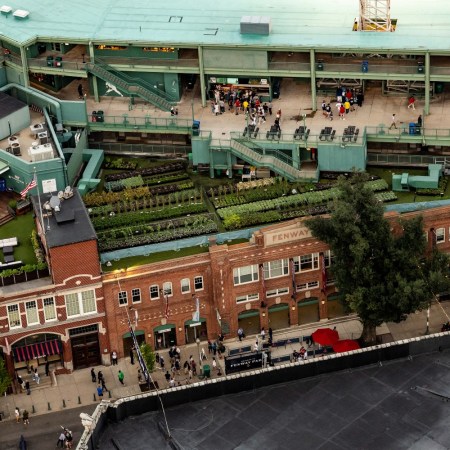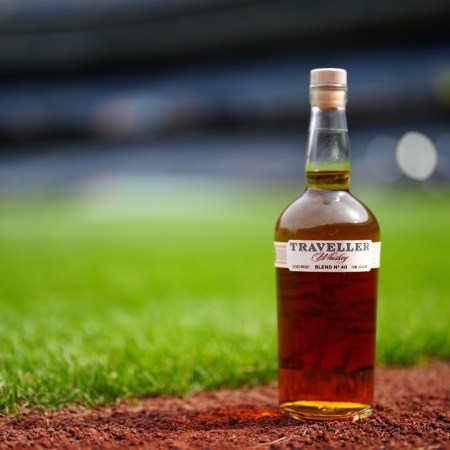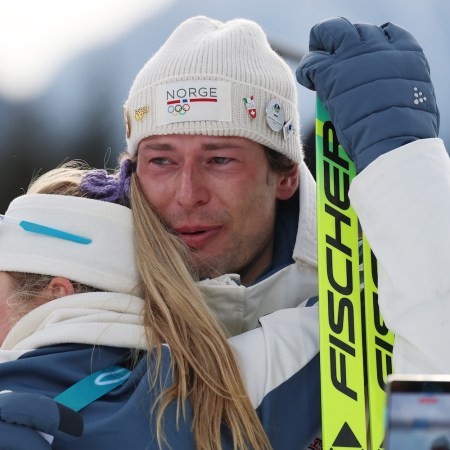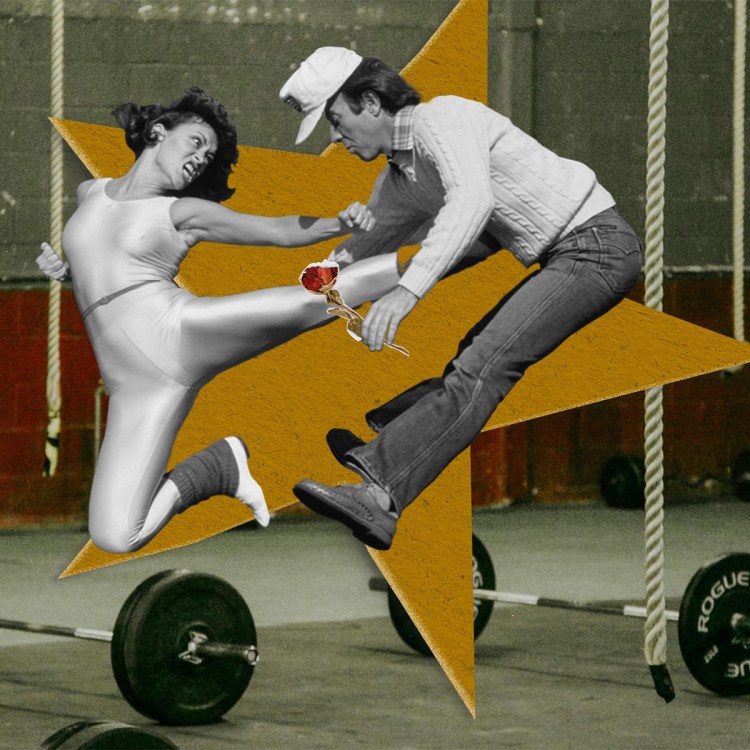As Major League Baseball enters its so-called “hot stove” season, temperatures across the country are dropping like bloop singles into right. It’s a dynamic David Mellor is very familiar with.
Now the head groundskeeper for the Boston Red Sox at Fenway Park, Mellor — who has also overseen all things turf for the California Angels, San Francisco Giants and the Green Bay Packers — actually had to deal with snow on five of the seven Opening Days he worked for the Milwaukee Brewers, his first gig in the Major Leagues.
In the early morning hours before the game in ’94, a local meteorologist told Mellor there was “no chance” it was going to snow or rain prior to the first pitch. Feeling assured the early-April game would go off without a hitch, Mellor went to bed.
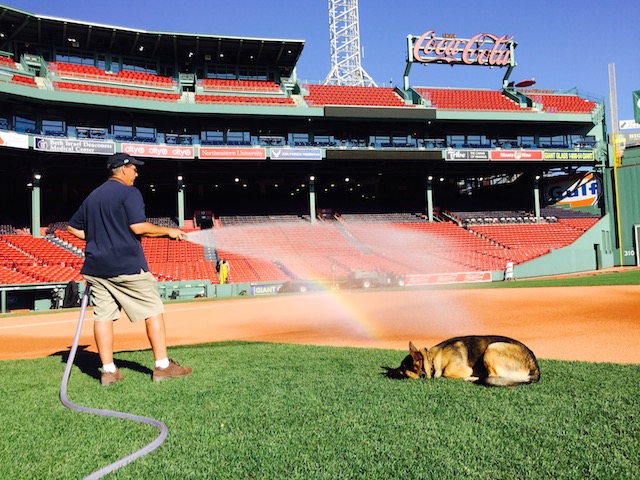
“At three o’clock in the morning, my newborn daughter woke up and she was crying,” Mellor tells InsideHook. “I brought her back to my wife in bed so she could feed her. And I thought, ‘Wow, it is bright outside.’ So, I walked into our living room and all of a sudden there was a clap of thunder and I look outside … it’s thundersnow. I couldn’t believe it. I opened the door and we had like three or four inches and it was just coming down in big flakes.”
Panicked, Mellor called his boss and was told the team would play the game if he could get the still-falling snow off the field by 10 a.m.
“My wife called half of our ground crew and my boss’s wife called half the ground crew,” Mellor says. “A lot of our crew are 18-year-olds living at home. So the phone rings in the middle of the night and their mothers were answering the phone like, ‘Who’s this older lady calling my kid?’ But it was incredible. That crew came in and worked hard. We brought in probably a hundred temps and by 9 a.m. all the snow was gone.”
Related: Lessons on Life and Lawncare From Fenway Park’s Head Groundskeeper
Unfortunately, unbeknownst to Mellor or his crew, the game had been called more than two hours beforehand.
“People just got busy and we never got the word,” Mellor says. “That night, sure enough, we got another 10-inch snowstorm. Luckily, probably like 90 of the hundred temps came back and the crew came in. Everybody knew the routine and got the snow all taken off. I couldn’t have been prouder of everybody’s contributions.”
While we didn’t ask Mellor for in-depth specifics about how he and his crew cleared off the field at Milwaukee County Stadium on those mornings in 1994 — think shovels, plywood, wheelbarrows and PVC piping — we did ask him for some tips about what homeowners can do to take care of their lawns before the freeze sets in.
Don’t … Be lazy and neglect to rake your leaves
“Remove your leaves so they aren’t sitting on their grass all winter long. Otherwise, they’re setting the lawn up for disease and also for voles and mice to live under them. Then when the spring comes and you take the leaves off, you have a lot of damage underneath from the rodents making tunnels on top of the grass and doing damage that way.”
Do … Root for some snow to fall
“A lot of times in the spring you’ll see lawns that kind of look like the color of cardboard. That’s from the winter winds desiccating and giving tip burn to your grass when there’s no snow cover. Snow’s a great insulator to your grass and ensures the frost doesn’t go as deep. It keeps the frost from going as deep and protects the grass from that wet, cold winter wind. When there’s no snow cover, that winter wind is really harsh on the grass blades.”
Don’t … Root for ice to form
“Ice is not good for your grass. After 45-60 days of ice, you’ve got to start worrying about just your grass suffocating. You can use charcoal or black sand to try to melt it. You definitely do not want to use rock salt. Salt will just suck the moisture right out of your grass. Calcium chloride would be safer to use. It’s easier on concrete, bricks and bluestone. It’s safer for your pets.”
Do … Make sure you invest in sharp mowing blades
“You want to make sure you have sharp mowing blades, especially on your last mow. If you mow with a dull mower blade, it frays your grass. It’s just like if you’re shaving or cutting your hair with a dull razor or scissors — it opens up sores on your grass and then those sores let the grass dry out. It opens it up for disease. It’s helpful to have two pairs of lawnmower blades. You can change one out once a month and sharpen it yourself or take it to the lawnmower repair shop. Or, see if you can make friends with the golf-course superintendent and get them to sharpen it for you.”
Don’t … Cut your grass extra short just for winter
“I think too often people think they should scalp their lawn before the winter. That just stresses the grass. If you’re in the cold-season climate, you should continue to mow the grass at 2.5, three inches tall. If you scalp the grass, you’re setting it up to be stressed for the winter. You want to have the grass go into the winter as healthy as possible.”
Do … Make sure your lawnmower is ready for spring
“Over the winter’s a great time to get your mower in shape. Get it tuned up, checked out and change the oil so you’re ready to go. If you’re not doing it yourself, turn it in now to your repair shop. At the last minute they’ll have a long list of people they’re trying to get served. And once again, pick up an extra set of mowing blades.”
Don’t … Skimp out on supplies
“You get what you’re paying for when you invest in products, whether it’s mowers, fertilizers or seed. I wouldn’t cut corners on cheaper seed or cheaper fertilizer — I would invest in it. There are some great mixes out there and you’re going to want to invest in good seed. It impacts the germination rate and gets out the weed seed and the crop seed that are in the cheaper mix. In the long run, it all adds up. Just like a lot of things in life.”
The Charge will help you move better, think clearer and stay in the game longer. Subscribe to our wellness newsletter today.


